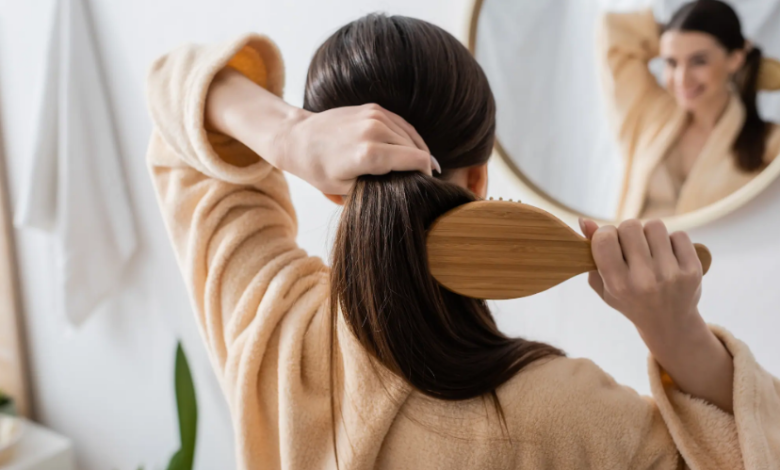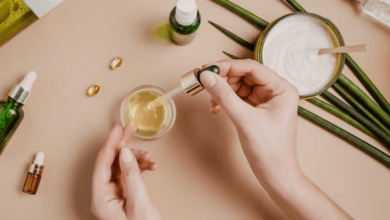Caring for Delicate Hair

Understanding the Needs of Sensitive Scalp
A sensitive scalp can lead to discomfort such as itching, redness, or flaking. The skin on the scalp is delicate and often reacts to harsh chemicals, environmental pollutants, and even certain hair care routines. Choosing the right hair care approach is essential for maintaining comfort and scalp health.
Recognizing Sensitivity Signs
People with a sensitive scalp often notice irritation after using ordinary shampoos or hair treatments. Common signs include itching, burning sensations, redness, and dryness. Early recognition of these symptoms helps in selecting the right products and preventing further discomfort.
Selecting Gentle Hair Care Products
The right products for delicate hair should cleanse effectively without stripping natural oils or causing irritation.
Key Ingredients to Look For
Look for calming ingredients like aloe vera, chamomile, sensitive shampoo hong kong oat extract, and calendula. These natural extracts soothe irritation and maintain scalp hydration. Avoid shampoos containing sulfates, artificial fragrances, and alcohol, which can aggravate sensitive scalp conditions.
Choosing the Right Shampoo Type
Liquid, sulfate-free shampoos tend to be more gentle than thick, highly concentrated formulas. Products labeled as dermatologist-tested or hypoallergenic are safer choices for daily use.
Creating a Hair Care Routine
Establishing a consistent routine ensures your scalp remains healthy and irritation-free.
Proper Cleansing Techniques
Use lukewarm water to avoid drying the scalp. Massage shampoo gently into the roots and rinse thoroughly. Avoid vigorous scrubbing, which can exacerbate sensitivity.
Conditioning and Moisturizing
After cleansing, apply a gentle conditioner suitable for sensitive scalps. Conditioners help lock in moisture and protect the hair shaft from damage. Focus on the hair length rather than the scalp to prevent excess residue.
Protection from Environmental Factors
Exposure to sun, pollution, and harsh weather can worsen scalp sensitivity. Consider using protective sprays or mild leave-in conditioners that shield hair from external stressors.
See also: Flexible Security with an Indexed Universal Life Policy
Addressing Common Hair Concerns
Sensitive scalps may experience issues like dandruff, dryness, or hair thinning. Proper care and suitable products help manage these challenges.
Combating Flaking and Itching
Products containing mild antifungal ingredients or soothing botanical extracts help reduce flaking and itching. Avoid heavy medicated shampoos unless prescribed by a dermatologist.
Supporting Hair Strength
Regular use of gentle shampoos and conditioners helps prevent breakage. Look for ingredients that strengthen hair strands, like biotin, keratin, and natural oils.
Managing Hair Loss
While hair loss may have various causes, maintaining a healthy scalp is crucial. A calm, well-moisturized scalp provides a better environment for hair growth and reduces further thinning.
Adjusting Hair Care for Seasons
Environmental changes can affect scalp sensitivity, requiring adjustments in routines.
Summer Hair Care Tips
Use lightweight shampoos and conditioners that cleanse without over-drying. Limit exposure to chlorine in swimming pools and rinse hair thoroughly after swimming.
Winter Hair Care Tips
Cold, dry air can exacerbate scalp dryness. Switch to hydrating shampoos and conditioners and consider scalp treatments that provide extra moisture.
Lifestyle Habits That Support Hair Health
Hair care goes beyond topical products. Lifestyle factors can significantly influence scalp health.
Nutrition for Healthy Hair
A balanced diet rich in omega-3 fatty acids, vitamins, and antioxidants supports scalp and hair health. Adequate hydration ensures proper scalp moisture and prevents dryness.
Stress Management
Stress impacts hormone levels, which can worsen scalp sensitivity. Activities like meditation, exercise, and yoga help maintain a healthy balance.
Quality Sleep
Proper sleep allows the scalp to repair and regenerate. A regular sleep schedule contributes to overall scalp comfort and hair health.
Avoiding Common Mistakes
Even with the best sensitive shampoo hong kong products, improper use can lead to issues.
Over-Washing
Washing hair too frequently can strip natural oils, worsening dryness and irritation. Limit shampooing to 2-3 times per week, depending on hair type.
Using Harsh Tools
Avoid hot water, strong hair dryers, and harsh brushes. Gentle handling prevents scalp damage and reduces irritation.
Mixing Multiple Products
Using multiple hair care products with strong active ingredients can overwhelm a sensitive scalp. Introduce new products gradually and monitor scalp reactions.
Choosing Reliable Hair Care Brands
Not all products designed for sensitive scalp are effective. Selecting trustworthy brands ensures safety and optimal results.
Certification and Testing
Look for shampoos that are dermatologist-tested, hypoallergenic, or specifically formulated for sensitive scalps. These certifications indicate products are evaluated for gentle use.
User Feedback and Recommendations
Reviews from other users with similar scalp concerns provide valuable insights. Products recommended by dermatologists or trichologists are often more reliable.
Conclusion
Maintaining a healthy scalp requires a thoughtful approach that combines gentle cleansing, appropriate products, and supportive lifestyle habits. Using the right sensitive shampoo hong kong and maintaining consistent routines ensures the scalp remains comfortable, hydrated, and free from irritation. Proper care supports overall hair health, reduces common scalp issues, and promotes stronger, shinier hair over time.





